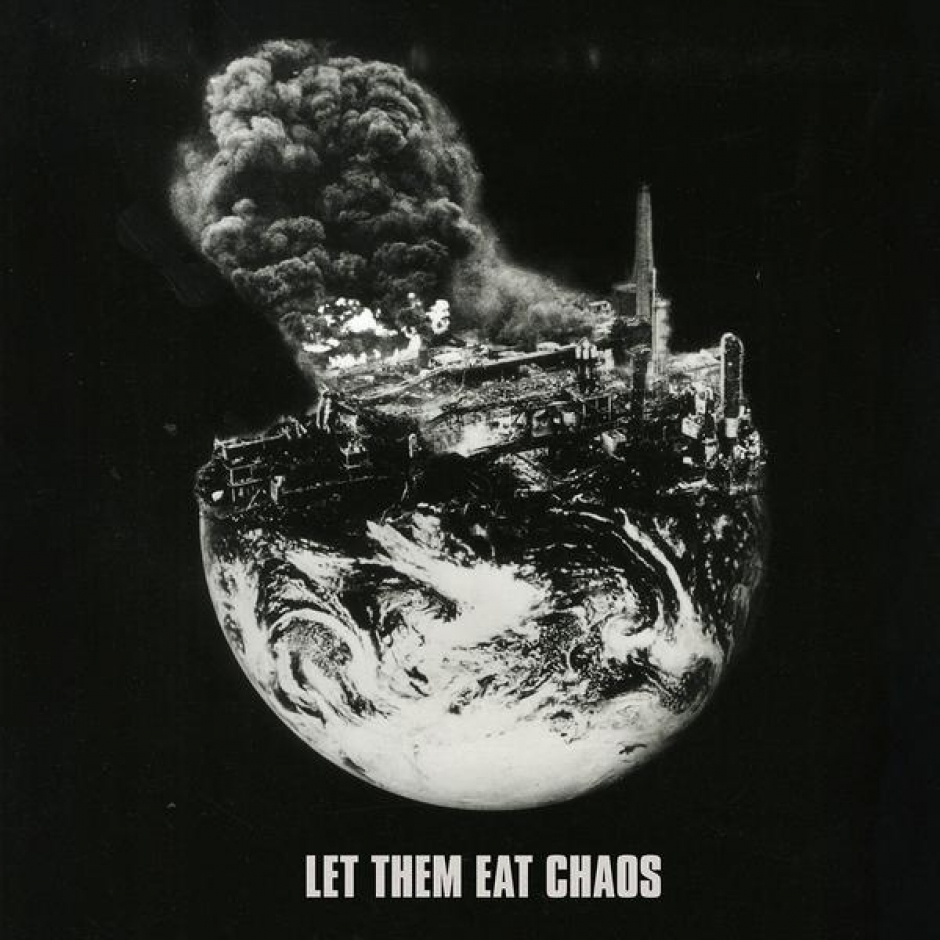Kate Tempest’s newest collection of poetry demands to be felt. Let Them Eat Chaos is a book-length poem that begins with the admission, and gentle command, that ‘this poem was written to be read aloud’. Though Let Them Eat Chaos is meant to be read aloud, its performance on the page as a written poem functions well enough to stand on its own, even if it is at times a bit wobbly. The spoken performance of the poems is more powerful, as the internal rhymes and soft push of rhythms comes through, something that is perhaps lost when read. That is not to say that Tempest is restricted to verbal recounts of her poems whatsoever: if her novel Bricks That Built the Houses proved anything but her vast literary talent, it’s that she is not only a spoken word trick pony.
As you read through Let Them Eat Chaos, Tempest utilises every visual technique in her arsenal to ensure that it is read as if Tempest herself was in the room with you. She italicises what should be emphasised, separates what needs to be punched out when read; she almost decides when you should take a breath.
However, one of the more difficult lines to read aloud is a non-punctuated stanza, which gives way to Tempest’s rage, confusion, and desperation:
We are lost we are lost we are lost we are lost we are lost we are lost
we are lost we are lost we are lost
wearelostwearelostwearelostWe
Are
Lostwe are lost.
Tempest’s narrator throughout Let Them Eat Chaos takes the reader on a journey through tangible areas of London, and to seven neighbours struggling to live against the whims of a capitalist and gentrified London. This is clearly an issue she feels passionate about: the London of her youth disappearing underneath money-oriented goals of people in positions of power, and this profound sentiment and sadness laces the poem. Tempest hones in on landlords in positions of monetary power:
For years
the landlord never fixed the shower
The mould kept growing up the kitchen walls.
He’ll do it up nice now
sure
repaint it
He’s tripled the rent.
He’s gonna get it and all.
Tempest calls out the buying and renting cycle that London is notorious for. Tempest also attacks war and the subsequent refugee crisis with the damning admission that ‘it was our bombs that started this war.’
Life is much broader
than borders
Tempest ends on the self-reflective declaration:
you’re more
Than the three or four
you’d go to war for.
You’re part of a people that need your support
She writes this within the ‘restrictions’ of these seven neighbours, who are all struggling to live with different crises of life individually. Then each character seems to cast off their troubles, or at least to let them subside, when they leave their flats at 4:18am to stand in the rain together. This united front is, what I feel, Tempest’s main aim with this poem. She incites the potential for rightful anger in the reader by showcasing all that is bad in the world for seven strangers, and then in a very quick, very potent succession of clipped-to-the-point stanzas, showcases all that is bad in the world, period. These closing pages are full of this dangerously strong rhetoric, which runs through global warming, mental illness, and casualties of war, among other issues in powerful blasts of righteous indignation. She calls on ‘you’ the reader to do something as ‘we’ the collective are harmed, unaware as ‘we sleep so deep,// it don’t matter how they shake us.’
Tempest’s frustrations slow into the soft culmination of how we might utilise our anger and indignation for good. The morality and didacticism of Let Them Eat Chaos ends with the wish for people to ‘love if you can. Then pass it on’[.] The narrator closes the book with a childlike whimper:
pleading with my loved ones to
wake up
and love more.
Let Them Eat Chaos does exactly that. The reader is fed the injustices of the world in large mouthfuls, so that when they finish and they’re overflowing with responses to Tempest’s poem, they take in the closing lines and vow to do just that. Or maybe that’s just me, but this ideology is one I feel many would benefit from, and is a step in trying to remove at least a little of this chaos.

